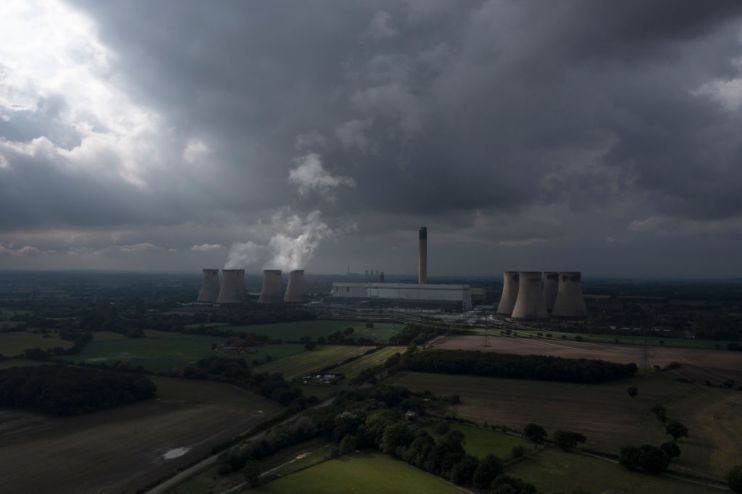‘Concessions to the gas lobby’: Renewable energy sector blasts government’s gas power play

The UK’s renewable energy sector has slammed the government’s new commitment to develop gas-fired power stations to act as a back up to support green energy projects, arguing it cancels the government’s intention to de-carbonise the electricity system by 2035.
Energy Secretary Claire Coutinho outlined the plans to support green projects with gas-fired power stations for “when the sun doesn’t shine and the wind doesn’t blow.”
Lincoln Hill , the Nuclear Industry Association’s director of policy and external affairs, said the policy outline came as no surprise because the government has failed to support the UK’s green energy transition.
“This is the inevitable consequence of not investing in nuclear quickly and early enough. On days like today with gas accounting for 50 per cent of the electricity mix. We lack the clean, firm power we need when the weather is against us,” he said.
Hill added that it is “essential” that a final investment decision is made on Sizewell C before the next election, approve more small modular reactors and start work on more large nuclear projects to make sure the UK is not “reliant on expensive and volatile gas markets”.
Jess Ralston, an energy analyst at the Energy and Climate Intelligence Unit think tank, agreed that it was wrong for the UK to rely on an energy source which has massively fluctuated in price over the last few years.
“The secretary of state suggesting that if we cannot control energy prices then we are not secure as a country, while announcing new gas power stations, has a real irony about it,” Ralston said. “Anyone paying an energy bill in the past two years knows that the UK doesn’t control the price we pay for gas, that international markets decide.”
Environmental campaigners were even more angry about the plans.
“This latest announcement must be seen for what it is – concessions to the gas lobby,” Rebecca Newsom, the head of Greenpeace UK’s politics unit, said. “It demonstrates the stranglehold that the fossil fuel industry still has on the government’s decision making, and ministers’ incompetence in actually delivering the policies they have promised.”
However, Northern Gas Networks chief executive Mark Horsley said the proposals offer the opportunity for the gas and electricity industries to work “hand in hand to keep the lights on.”
“Renewables are intermittent. Electricity must be a major part of the net zero solution, but we need to accept that it can never power the UK alone,” he added.
Anders Lindberg, president of energy technology specialists, Wärtsilä Energy, told City A.M. that gas has a role to play in speeding up the green transition, rather than being a permanent fixture.
“I think it makes a lot of sense having gas as a transitional fuel; you can have a lot of renewable energy, battery and energy storage etc but if you don’t have the balancing in the system then the gas plays an important role there until the new green hydrogen, ammonia etc will become available,” he said.
Lindberg’s contention is that gas power in and of itself is not the solution, but flexible gas-power – gas that is created in facilities that can be quickly turned on and off.
“I am curious to know what type of gas power plants it is in the government’s plans,” he said.
“If it is flexible it’s good, if it’s not then its not good – we don’t need more inflexible power plants because when they are up then they cannot be powered down quickly and you will have a curtailment of renewables which makes it more difficult for renewable investment,” he added.